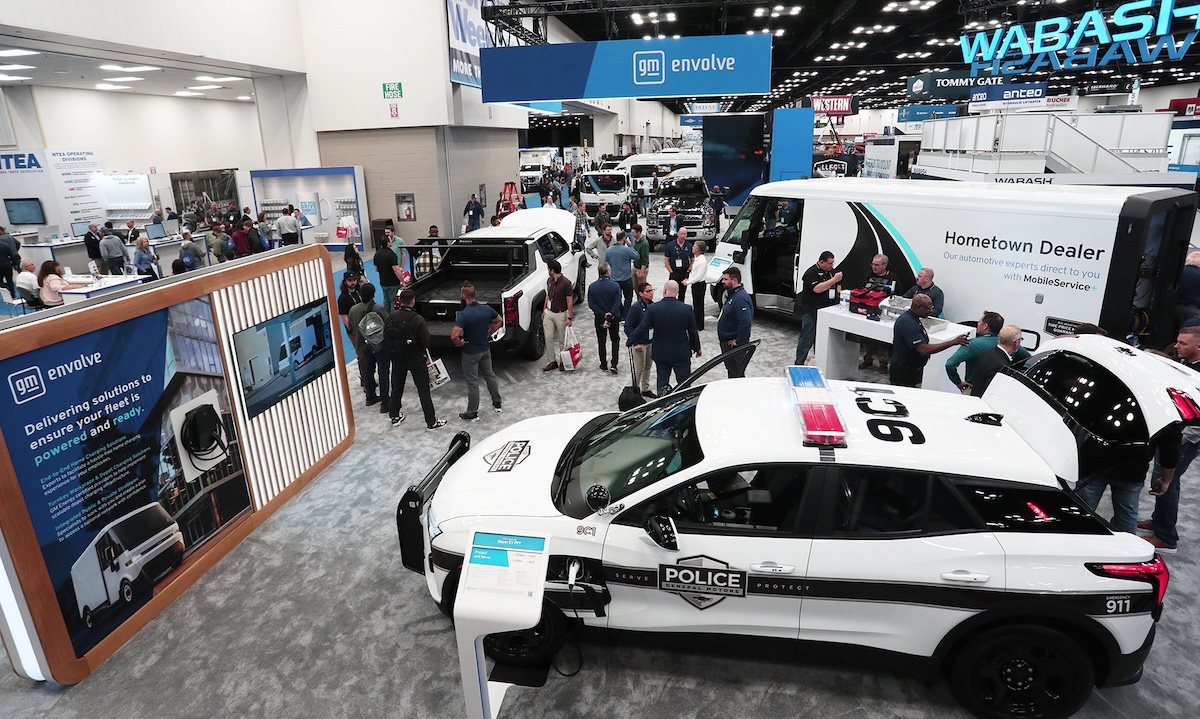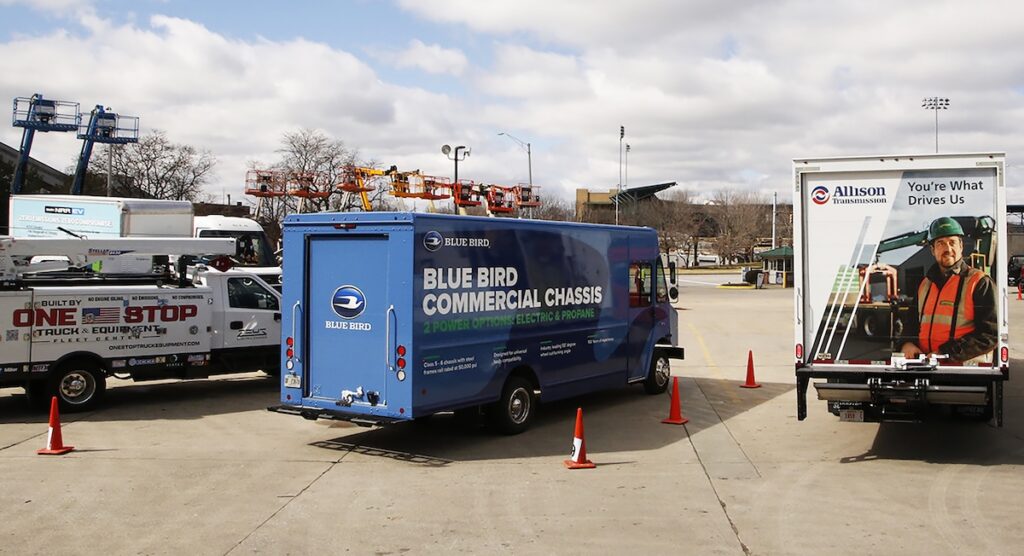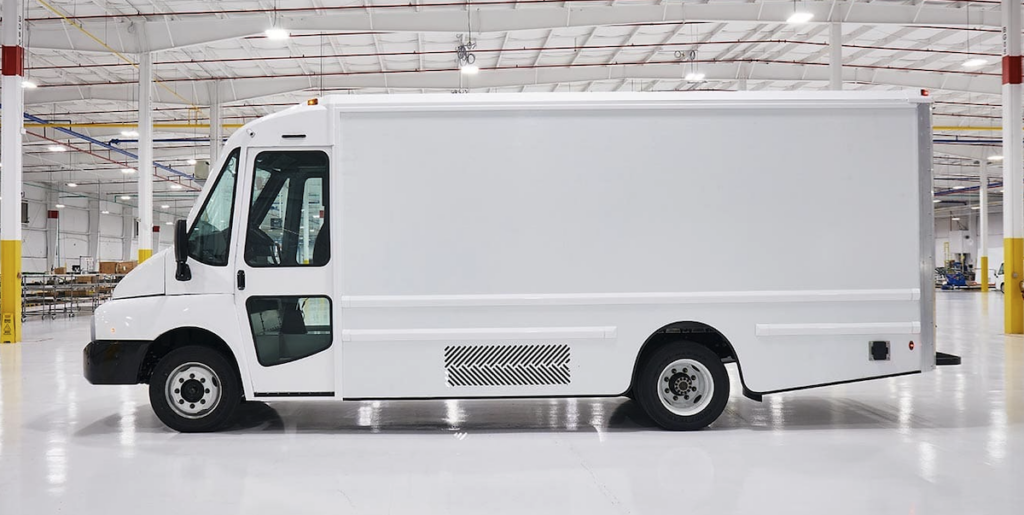Rethinking Fleet Service Priorities for Independent Shops
Enhanced data analysis, EV service capabilities will be required to serve commercial customers...

This article originally appeared in the August 2025 issue of THE SHOP magazine.
By Ian Gardner
Independent repair and upgrade shops have long served local commercial and business fleet customers, especially when it comes to their service and maintenance needs. The rapid evolution of connected vehicle data now presents an opportunity for independent shops to further grow this business, but their ability to properly leverage this data poses great challenges for the success of this business opportunity.
Recent findings from the EVAI U.S. Independent Repair Shop Fleet Business Survey, which was presented to 2,500 shops across the U.S. in April, underscore the urgent need for better communication, advanced diagnostic tools and improved access to connected vehicle data if independent shops are to remain relevant and profitable with fleet customers in the years ahead.

MARGIN COMPRESSION & NEW REVENUE STREAMS
The days of stable revenue driven by consistent consumer demand have shifted for the independent repair and upfit industry. Independent shops are now contending with increased operational costs, changing customer expectations and heightened competition.
As higher interest rates and elevated vehicle prices extend the lifespan of vehicles on the road, demand for aftermarket upgrades, service and repair has intensified. Yet, this has also created more competition, pushing independent shops to reevaluate how they operate and grow.
Because of this, the service and parts side of the business has become an even more important profit center. For many independent shops, commercial fleet service represents a growing portion of this business.
According to a recent industry survey, 31% of independent shops currently service commercial and business fleets, with most handling between 11 and 100 fleet vehicles per month. For nearly half of these shops, fleet service accounts for 11% to 25% of their repair business, providing a vital revenue stream.
With longer vehicle life and more expensive OEM parts increasing service needs, independent shops that offer better fleet management tools can build stronger relationships, encourage repeat visits and differentiate themselves in a fiercely competitive market.
FLEET SERVICE: OPPORTUNITIES & CHALLENGES
Despite its promise, the commercial fleet segment comes with hurdles. Communication between shops and fleet managers is often sporadic or nonexistent, with nearly 60% of surveyed shops reporting they rarely or never communicate with their fleet customers.
This lack of engagement hampers fleet customer retention and limits opportunities for upselling or proactive maintenance.
Geography and price competitiveness also present barriers to acquiring and retaining fleet customers. To stand out, independent shops must prioritize the customer experience—offering streamlined scheduling, transparent pricing, consistent turnaround times and proactive communication. These factors build trust with fleet operators and can drive higher service volume and customer loyalty in a crowded market.

THE DATA DILEMMA
As fleets become increasingly connected, independent repair shops have an opportunity to differentiate themselves by leveraging vehicle data to support predictive maintenance and improve service efficiency. However, the survey reveals that 60% of shops still struggle to access and apply connected vehicle data effectively.
While most rely on third-party diagnostic and telematics tools, challenges with integration and usability are ongoing pain points. Predictive maintenance alerts and vehicle health reports are the most commonly used data types, but only a small fraction of shops store this data for long-term analysis, such as tracking total cost of ownership (TCO) for fleet customers.
Recognizing the need for improvement, over 40% of surveyed shops express a desire for better tools to capture and analyze connected vehicle data, while a similar portion are unsure of how to proceed. The complexity of diagnostics and repair, particularly as vehicles become more technologically advanced, is cited as a top challenge by nearly a third of respondents.
Advanced diagnostic tools, better integration of service information and more efficient scheduling systems top the list of desired improvements, highlighting the growing importance of digital transformation in independent repair operations.
THE EV TRANSITION: READINESS & RELUCTANCE
While the broader market is recently seeing slower EV adoption, the commercial fleet segment lags even further behind. Only 19% of surveyed shops currently service EVs for fleets, while 60% do not and 20% are unsure. This lack of readiness can be a significant concern for some businesses, given the growing emphasis on sustainability and the predicted inevitable shift toward electrification in fleet operations.
For independent shops, the transition to EVs is not just about technical capability but also about data. As fleets weigh the TCO of electric versus internal combustion engine (ICE) vehicles, access to comprehensive maintenance and performance data will be essential for informed decision-making. Yet only 10% of shops currently store connected vehicle maintenance data for future TCO analysis, underscoring a critical gap that must be addressed to support fleet customers through the EV transition.

THE PATH FORWARD
To thrive, independent repair shops must embrace digital transformation and invest in AI-driven solutions that enhance operational efficiency, customer engagement and data-driven decision-making. AI-powered tools can help streamline service workflows, improve diagnostics accuracy, personalize customer interactions and enhance scheduling systems.
For the commercial fleet segment, these innovations are not optional. Independent shops must develop robust systems for capturing and leveraging connected vehicle data, improve communication with fleet managers and offer seamless digital experiences that meet the expectations of modern business customers.
This may include integrating scheduling platforms, offering transparent pricing and providing comprehensive TCO analysis tools that help fleets navigate the complexities of electrification and vehicle lifecycle management.
At the same time, shops must continue to diversify their service offerings, exploring new revenue streams such as EV charging services, mobile repair and fleet servicing. The industry is still in an experimentation phase, but those who move quickly to adapt will be best positioned to capture emerging opportunities.
 Ian Gardner is the founder of EVAI, a cloud-based, AI-enabled platform for fleet electrification and management. Utilizing specialized fleet and EV-focused AI tools combined with deep operational experience in the commercial EV and fleet spaces, EVAI delivers TCO and uptime to fleet managers, enabling them to realize a positive ROI on their alternative fuel vehicle and infrastructure investments. Visit goev.ai.
Ian Gardner is the founder of EVAI, a cloud-based, AI-enabled platform for fleet electrification and management. Utilizing specialized fleet and EV-focused AI tools combined with deep operational experience in the commercial EV and fleet spaces, EVAI delivers TCO and uptime to fleet managers, enabling them to realize a positive ROI on their alternative fuel vehicle and infrastructure investments. Visit goev.ai.



